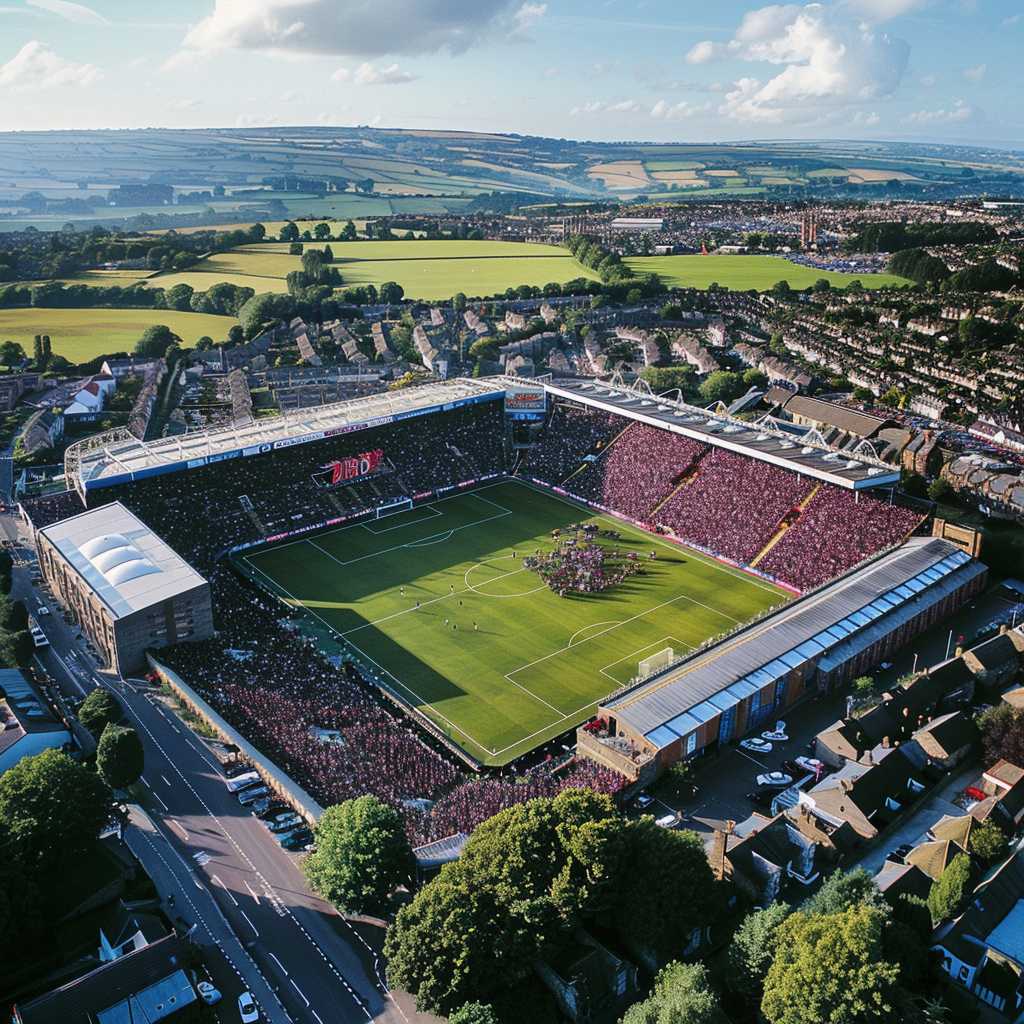The Rise, Challenge, and Community Focus of Burnley FC
Burnley Football Club, based in Burnley, Lancashire, have a rich history that dates back to its founding in 1882. In professional football, the club is recognized for its ups and downs across various tiers of English football and its profound impact both on and off the field, embodying the ethos that football clubs are more than just players and positions; they are part of a community.
Foundation and Early Achievements
Burnley FC was one of the twelve founder members of the Football League. Since then, the club has evolved, facing both triumphant victories and stout challenges. Notably, during the early years, Burnley captured its first FA Cup in 1914 and peaked with two First Division (now Premier League) titles in 1920-21 and 1959-60 seasons.
Modern Era Ups and Downs
Through the subsequent decades, Burnley experienced fluctuating fortunes. The club oscillated between divisions demonstrating the volatile nature of football success. The turbulence didn’t prevent the side from achieving cult status for certain unforgettable seasons, such as when they became unlikely runners-up in the First Division during the 1961-62 season.
The 1980s and much of the 90s were challenging for The Clarets as they found themselves relegated to the lower tiers of English league football, even escaping relegation from the Football League on the last day in 1987—a stark contrast to their earlier days of glory.
However, the turn of the millennium marked a gradual return to form. Under various managements, Burnley clawed back from being a mid-tier second division club to re-establishing their place within the top tier of English football. The most recent ascent was in 2016 under manager Sean Dyche, leading to five consecutive seasons in the Premier League—which included qualification for the UEFA Europa League following a seventh-place finish in 2017-18—as testament to their tenacity and improved gameplay.
Youth Development and Community Involvement
Burnley FC has been recognized for its superb youth development pathway and focus on local talent. Evident at Burnley’s academy, there’s a belief in grooming young players to first-team status—a philosophy seen as benefits towards sustainability within the club.
Additionally, the club extends its influence through community scheme, engaging with locals via educational programs as well as health and lifestyle initiatives. The outreach has built solid relationships between the fans and the club, reinforcing social cohesion within Burnley.
Financial Sustainability and Management
The financial aspect of football management has been another area where Burnley FC has made headlines. Unlike many competitors who’ve faced financial disparity or overspending scenarios, Burnley has maintained prudence in financial affairs despite rising television broadcast revenues due to their Premier League presence. A stringent wage structure along with shrewd transfer policy can be credited for much of their recent stability.
Recent Performances and Expectations
On-pitch success ebbs and flows but Burnley remains fiercely competitive. Their playing style has been described as pragmatic but effective at securing points when it matters most. Despite being overshadowed by bigger clubs in terms of finances and global fan bases, they’ve shown a remarkable ability to galvanize smaller clubs’ position within England’s top-tier.
Moving forward, fans and soccer pundits alike anticipate Burnely will work within their means—remaining loyal to methodologies that stress resilience and astute managerial guidance—to challenge an unpredictability of future football seasons.
